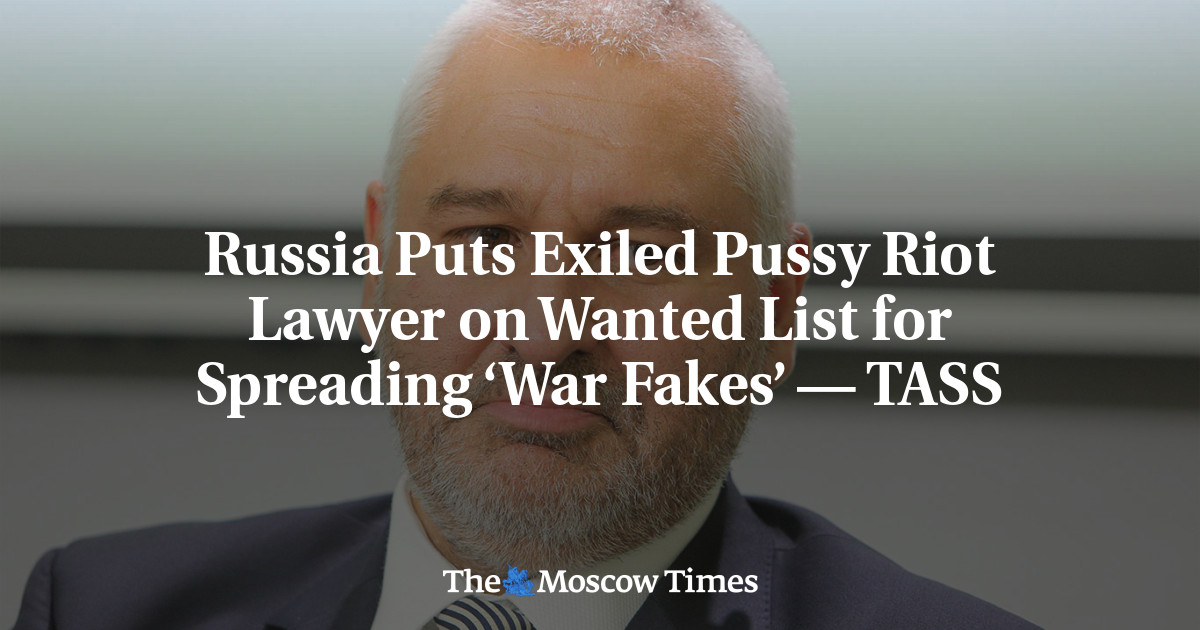
Russian authorities have placed exiled former lawyer and popular YouTube personality Mark Feygin on their wanted list on accusations of violating wartime censorship laws, the state-run TASS news agency reported Monday.
Russia’s Interior Ministry earlier in the day listed Feygin in its database of wanted persons without indicating which crime he is suspected of.
An anonymous law enforcement source told TASS that Feygin has been charged with spreading “fake news” about Russia’s invasion of Ukraine.
Russia outlawed disseminating “knowingly false information” about the Russian military shortly after invading Ukraine, with punishments ranging from fines to a maximum of 15 years in prison.
“They [the Russian authorities] have their own logic and are guided by considerations unknown to us. Why have they done it now? But this was not a surprise to me, I was expecting this,” Feygin told The Moscow Times in a phone interview Monday.
The UN estimates nearly 200 people have been prosecuted for “fake news” about the Russian military, including prominent opposition politician Ilya Yashin, as of mid-2023.
Feygin gained fame in the 2010s for representing the anti-Kremlin punk collective Pussy Riot and the Ukrainian pilot Nadezhda Savchenko in Russia.
Following Russia’s full-scale invasion of Ukraine in February 2022, Feygin became one of the most-watched Russian anti-war bloggers with 2 million YouTube subscribers.
Russia stripped Feygin of his attorney status in 2018 — after which he fled the country — and labeled him a “foreign agent” in 2022.
“I remain a citizen of Russia and so far I don’t see the need to obtain another citizenship. But there will be no extradition [for the latest case] since I have the status of a political refugee,” Feygin told The Moscow Times.
“I think this is a common totalitarian practice of the current Russian government — they charge everyone in absentia in order to show others what happens for speaking out against the authorities,” he added.
Feygin had served as a deputy in Russia’s lower house of parliament, the State Duma, from 1993-95.
Editors’ note: Feygin contributed several opinion pieces to The Moscow Times in 2011.